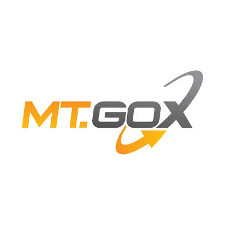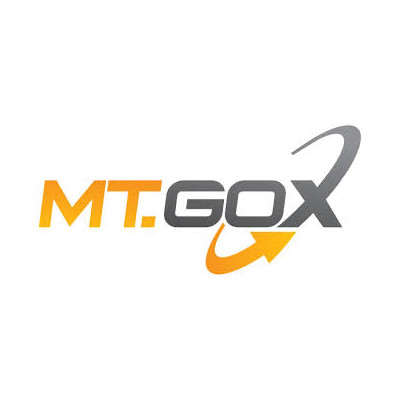
Over the three years of its major operations, Mt. Gox had lost hundred of millions of dollars’ worth of Bitcoin, which would inevitably force the company into bankruptcy when it could no longer hide the facts. This left the over 24,000 users on the exchange holding the bag, with nothing to show for their forward-thinking Bitcoin investment but an empty wallet and a grudge. But this all happened way back in 2014 – ancient history by today’s crypto market standards. So why are we talking about it now?
Mt Gox is back in the news because the trustee of the long-defunct company has been quietly selling off assets recovered from the exchange through its bankruptcy case. Since September 2017, the Tokyo-based lawyer charged with managing the bankruptcy trust has sold off about $400 million worth of Bitcoin and Bitcoin Cash.
But what’s happening with this money? Do the thousands of people affected by Mt. Gox’s sudden closure have a big payday coming? Well, before getting to that, let’s start at the beginning.
The Story of Mt. Gox – A Cautionary Tale of Incompetence and Greed
Flashback to 2011. Bitcoin had barely broken onto the scene, and cryptocurrency trading was barely even a thing. The story begins with a tech entrepreneur named Jed McCaleb. A few years prior, McCaleb launched a site designed for trading Magic: The Gathering cards – hence the name, Magic The Gathering Online eXchange (“MTGOX”). After a few years, he figured out that there was more money in trading Bitcoin, so McCaleb reconfigured Mt. Gox to become a platform for trading Bitcoin rather than playing cards.
The exchange skyrocketed in popularity and, less than a year since hosting its last sale of a highly-sought after Power Nine MTG card, the lucky Mt. Gox founder cashed out. McCaleb sold the site to a twenty-something Frenchman living in Japan named Mark Karples. McCaleb retains 12% of the company, but he goes on to bigger and better things. (Here is where McCaleb leaves our story, although it’s worth mentioning that he is the very same Jed McCaleb who founded both Ripple (“XRP”) in 2011 and Stellar (“XLM”) in 2014.)
From the moment Karples gets his hands on MtGox.com, things pretty much go downhill. Although he is a trained programmer and early Bitcoin adopter, he turns out to be a pretty dismal Chief Executive. Karples immediately set to work rewriting the site’s software and, although he did manage to grow it into the world’s leading Bitcoin exchange, he also exposed the platform to huge security flaws.
Mt. Gox was hacked for the first time in June 2011. A hacker in Hong Kong broke into the main Mt. Gox wallet, taking the site down for several days and absconding with over 500,000 BTC – worth about $8.75 million at the time. Although this sent shockwaves through early crypto markets, Karples barely flinched. He continued to ride high on the life of a top tech executive and Bitcoin millionaire, all but ignoring the very security issues that allowed the theft to occur in the first place.
The security flaws and design issues that languished in the Mt. Gox source code, tempting hackers and insiders alike into skimming a few coins off the exchange here and there. Although there wasn’t a one-time big getaway like the 2011 hack, Mt. Gox announced that it had to cease operations in early 2014. In total, the exchange had lost at total of 850,000 Bitcoins. At today’s rate, that’s about $8.5 billion. Just to put this into perspective, the thieves who pulled off the largest bank robbery in the United States only made off with $176 million in cash and valuables.
To nobody’s surprise, the story ends with Mark Karples in court facing data manipulation and embezzlement charges. But what about the money Mt. Gox still owes to all the investors, creditors, and users that got burned?
Mt. Gox Creditors Are Looking for A Payout
Mt. Gox’s gross mismanagement cost a lot of people a lot of money. The trustee charged with managing the exchange’s bankruptcy is still working out who is owed what and when, but he has decided that now is the time to start selling off the company’s assets. In total, the trustee has cashed out $400 million worth of Mt. Gox’s cryptocurrency assets over the past six months.
The liquidation of Mt. Gox’s long-held Bitcoin and Bitcoin Cash is part of a repayment strategy. Mt. Gox’s bankruptcy trustee, Nobuaki Kobayashi, explained his intention to “secure a certain amount of money for distribution resources,” by selling Mt. Gox’s assets at the peak of the market. He’s doing pretty well too. Financial disclosures indicate that Kobayashi had sold Mt. Gox’s BTC holdings at an average market price of $10,105.
While the terms and amount of reimbursement remains to be seen, things are finally looking up for Mt. Gox users. The bankruptcy court has accepted over 25,000 creditor claims against Mt. Gox, so even despite recent progress, the exchange still has a long way to go before everyone is properly reimbursed. Fortunately for them, it looks like there just might be enough Bitcoin left over from Mt. Gox’s heyday to go around. The company was able to recover 200,000 Bitcoins last year, and according to the trustee the defunct company still has $1.8 billion worth of coins still waiting in the wings.
Mt. Gox has returned to the headlines, hopefully reminding the crypto community of some lessons learned from its epic failure. Theft and fraud are still sources of major loss in crypto markets. Reflecting on Mt. Gox, let’s keep a keen eye on exchange and wallet security in the future. After all, Mt. Gox was the Coinbase of its time, and we all need to make sure the same events don’t come to pass once again.

